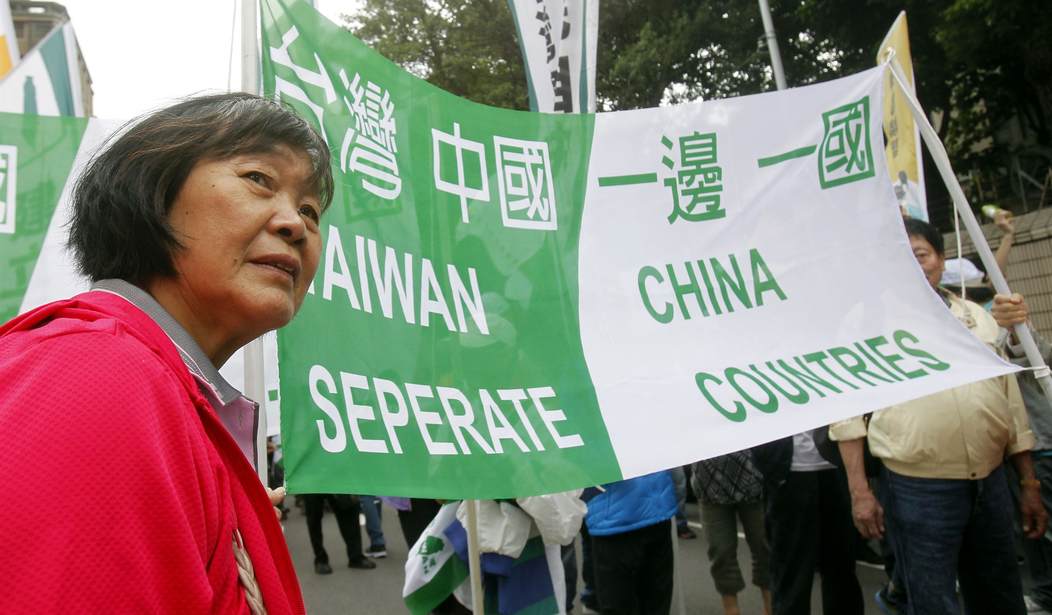I’m thinking that this story is proof that some countries will be willing to pick a fight with the United States over almost anything (or nothing, really) as we move forward from here. The strangeness begins at the official office of Taiwan in Washington, DC. The formal name of the agency is the Taipei Economic and Cultural Representative Office in the United States (TECRO). The counterpart to this office in Taiwan is identified as the American Institute in Taiwan in Taipei. These awkward-sounding names were chosen for a reason originally. Neither of them is referred to as an “embassy” and they both include the name of the city of Taipei because we don’t formally recognize Taiwan as an independent nation, though we treat them that way sometimes. The choice of names was a sop to China. But word has leaked out that the Biden administration is considering changing the name of the office in Washington to the Taiwan Representative Office. So how would China respond to this? An editorial was immediately published in one of the state-controlled newspapers in China threatening “severe economic and military measures” in response. All of this is over a one-word change to the name of a relatively obscure office. (Free Beacon)
Chinese state media threatened military action in the Taiwan Strait in response to reports that top U.S. officials are considering changing the name of the Taiwanese representative office in Washington, D.C., to include the name “Taiwan” rather than “Taipei.”
The Global Times, a mouthpiece for hawkish elements of the Chinese Communist Party, in a Sunday editorial assured swift retaliation against the United States through military and economic punishment if the country goes through with the name change. The newspaper also questioned American resolve in the wake of the Biden administration’s botched withdrawal from Afghanistan.
“If the [United States] and the Taiwan island change the names, they are suspected of touching the red line of China’s Anti-Secession Law, and the Chinese mainland will have to take severe economic and military measures to combat the arrogance of the [United States] and the island of Taiwan,” the editorial reads.
I’ll first note that this response didn’t come in the form of an official statement from the government in Beijing. But nothing is going to show up in the Global Times without first receiving the blessings of the Chinese Communist Party. (Or if it does, someone at the paper may need to pack for an extended stay in a reeducation facility.) So you can safely assume that at least some of the controlling elements of Xi Jinping’s administration were okay with it.
The editorial didn’t leave much room to question why China might be considering such a rash action. We’ve been speculating about this ever since the botched evacuation of Kabul began. To the rest of the world, it probably looks like the United States was prepared to run away from a fight and abandon its friends (as well as some of its own citizens). So how would aggressive adversaries respond to news like that? We might find the answer in the next paragraph in the editorial.
“We must take resolute actions to protect the bottom line of this exact national interest at any cost,” the article continues. “If the Democratic Progress Party authority really dares to take the risk of triggering a war to push for a name change, and the [United States], which just suffered a debacle in Afghanistan, is not afraid of being involved in a new war, then what is there for the mainland to be scared of?”
This may still be little more than grandstanding, coming at a time when tensions are running high between Beijing and Washington. But then again, perhaps it’s something more. They are flagrantly throwing out that comment about the United States bailing out of Afghanistan. Is it possible that China has reached the point where they believe they could launch an overt military attack on Taiwan or even a United States naval ship in the Taiwan Strait without fear of an American military response?
They might have a point. Does anyone really want to see a war between China and the United States at this point? The Chinese shouldn’t really want one themselves considering how much of our debt they hold. But they might not be quite as afraid of a proxy war in the Strait as they used to be. Taiwan has always been a sore spot between America and China. The compromise that was reached long ago was that we could recognize some types of economic ties and agreements with the city of Taipei and its businesses rather than recognizing the entire island as a nation unto itself.
As we’ve discussed here recently, China is in the midst of an overhaul of its domestic policies, tamping down any positive discussions of capitalism or profit and promoting popular support for socialism and sacrifice. A more aggressive military posture could easily be seen as part of that model. But would it extend far enough to actually open fire on one of our ships? That remains to be seen, but they certainly don’t seem to be very afraid of us at the moment.







Join the conversation as a VIP Member